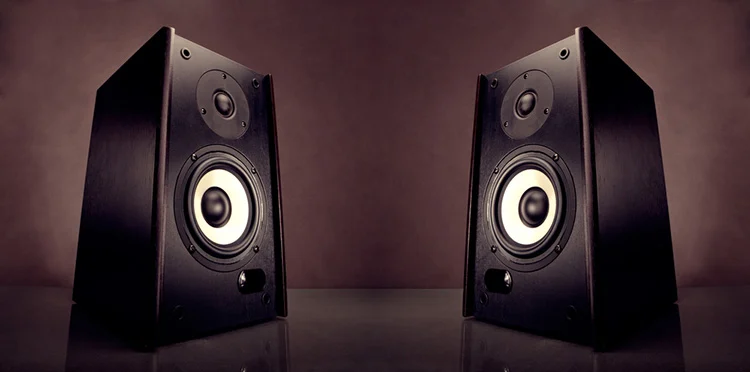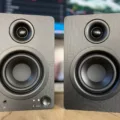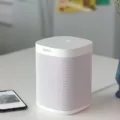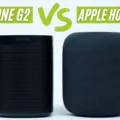A muffled sound from speakers can be a frustrating experience for anyone who loves to enjoy high-quality audio. This issue can often ruin the entire listening experience and can leave users feeling disappointed and dissatisfied. However, this problem can be fixed by understanding the root causes and taking appropriate actions.
The first thing to check when experiencing muffled sound from your speakers is the wiring. Make sure that the speakers are wired correctly, as incorrect wiring can cause sound distortion. If the wiring is correct, check the wiring for any damage, as damaged wires can also cause a muffled sound.
Another possible cause of muffled sound is the AV receiver being in the wrong setting for the media. Make sure that the AV receiver is set to the correct media format, as this can have a significant impact on the audio quality.
To prevent muffled sound, it is recommended to record without any effects in an open space with a good microphone. If the voice is already recorded, applying some EQ to the vocal track can help reduce the low and low-mid frequencies, which can help eliminate the muffled sound.
In some cases, the underwater-like sound coming from headphones could be due to a faulty sound card. If this is the case, uninstalling the sound card and installing a new and updated one can help solve the problem.
If your loudspeaker is distorting at high levels, there are two possible causes. The first and most common is that the audio source itself is distorted. The second is that the speaker drivers are being pushed beyond their designed motion limits, which causes them to behave non-linearly and produce distorted sound.
A muffled sound from speakers can be caused by various factors, including incorrect wiring, damaged wires, and incorrect AV receiver settings. To prevent this issue, it is recommended to record without effects in an open space and apply EQ to the vocal track. If the problem persists, checking the sound card and speaker drivers can also help eliminate the issue.

Troubleshooting Muffled Sound from Speakers
A muffled sound from speakers can be caused by a variety of factors. One common cause is improper wiring. If the speakers are not wired in sequence, this can result in a muffled sound. Another possible cause is damaged wiring, which can cause a loss of sound quality. Additionally, it’s important to ensure that your AV receiver is set to the correct setting for the media you are playing, as this can affect the quality of the sound.
To troubleshoot muffled surround sound, you can try checking the wiring connections and ensuring that they are properly connected. You can also inspect the wiring for any damage or wear and tear. If the wiring is not the issue, you may need to adjust the settings on your AV receiver or consult the user manual for further troubleshooting steps.
A muffled sound from speakers can be caused by improper wiring, damaged wiring, or incorrect AV receiver settings. Troubleshooting steps may include checking wiring connections, inspecting wiring for damage, and adjusting receiver settings.
Fixing a Muffled Sound
To fix a muffled sound, it is best to record without any effects in an open space using a good microphone. It is important to avoid recording in a closet or enclosed space as this can cause the sound to become muffled. If the voice is already recorded, applying some EQ to the vocal track can help. It is recommended to reduce the low and low-mid frequencies to improve clarity. Additionally, using an informative tone of voice can help convey the information clearly and effectively. In the case of complex information, bullet lists can be used to provide a comprehensive explanation without repetition.
Investigating the Causes of a Muffled Speaker Sound
The sound coming from your speaker could sound like it’s underwater due to several reasons. One of the most common reasons is the presence of water or moisture in the speaker’s components. This could happen if the speaker got wet or was exposed to a humid environment. In this case, you can try drying the speaker thoroughly and keeping it in a dry place for some time before using it again.
Another reason could be a damaged or faulty speaker cone. The speaker cone is responsible for producing sound waves, and if it is damaged, it could cause distortion or muffled sound, making it sound like it’s underwater. In this case, you may need to replace the speaker cone or the entire speaker unit.
Lastly, the issue could be with the audio source or the audio settings. If the audio is compressed or the audio settings are not optimized, it could cause the sound to appear muffled or distorted, giving the impression that it’s underwater. In this case, you can try adjusting the audio settings or using a different audio source to see if the issue persists.
The sound of your speaker appearing like it’s underwater could be due to the presence of water or moisture, a damaged speaker cone or faulty speaker unit, or issues with the audio source or audio settings.
Causes of Distorted Sound from Speakers
There are a couple of reasons why speakers may sound distorted. One of the most common reasons is that the audio source itself is distorted. This can happen if the audio file is compressed or if there are issues with the playback device, such as a faulty connection or an outdated driver. In such cases, the distorted sound is fed into the speakers, causing them to reproduce the distortion.
Another reason for speaker distortion is when the drivers of the speakers are pushed beyond their designed limits. This can happen if the volume is turned up too high or if the speakers are being used in a way that they were not intended for, such as playing bass-heavy music through small speakers. When the drivers are pushed too hard, they can no longer move in a linear fashion, and the resulting sound becomes distorted.
It’s worth noting that some speakers are designed to handle high volumes and are less likely to distort in these situations. Additionally, using high-quality audio sources and ensuring that the speakers are set up and configured correctly can also help to reduce distortion.
Conclusion
A muffled sound from speakers can be caused by a variety of factors, including faulty wiring, damaged equipment, or incorrect settings on the AV receiver. Troubleshooting the issue can be simple or complex, depending on the root cause. Preventative measures such as recording in an open space and using a good microphone can help reduce the likelihood of muffled sounds. If the issue persists, applying EQ to the vocal track or installing a new and updated sound card may be necessary. It’s important to address the issue promptly to ensure optimal sound quality and prevent potential damage to the equipment.








